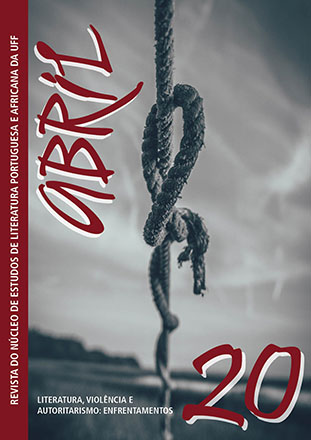Authoritarianism and violence in Portuguese-language literatures: Graciliano Ramos, Branquinho da Fonseca and Luís Bernardo Honwana
DOI:
https://doi.org/10.22409/abriluff.v10i20.29949Keywords:
Comparative literature, Portuguese-language literature, violence.Abstract
In this article we perform an exercise of comparative literature of the works Vidas Secas (1938, Barren Lives), by Graciliano Ramos, Nós matamos o Cão-Tinhoso (1964, We killed Mangy Dog), by Luís Bernardo Honwana, and Bandeira Preta (1956, Black Flag), by Branquinho da Fonseca, in order to think, mainly, about the presence of violence in their plots. The intention is not to establish a center of influence, as we are following Silviano Santiago’s request [2000(1971)], but to considerate some senses of those fictional constructions, notably what is related to language and the narrative form, from the comparative exercise. We also seek to peer how the characters receive the historical landscapes, or yet to identify how they resist to the violence present on those landscapes.
---
Downloads
Downloads
Published
How to Cite
Issue
Section
License
I authorize the journal Abril - NEPA/UFF to publish the paper of my authorship/responsibility that I now submit, in case it is accepted for online publication.
Moreover, I declare that this contribution is original, that it was not submitted to any other editor for publication, and I sign the present declaration attesting the truth of all its contents.
The copyright of the works published at the virtual space of the journal Abril - NEPA/UFF are automatically entitled to the journal. Their total or partial reproduction is conditioned to the authors' citations and publication data.

Abril is licensed under a Creative Commons - Attribution-NonCommercial 4.0 International (CC BY-NC 4.0).









